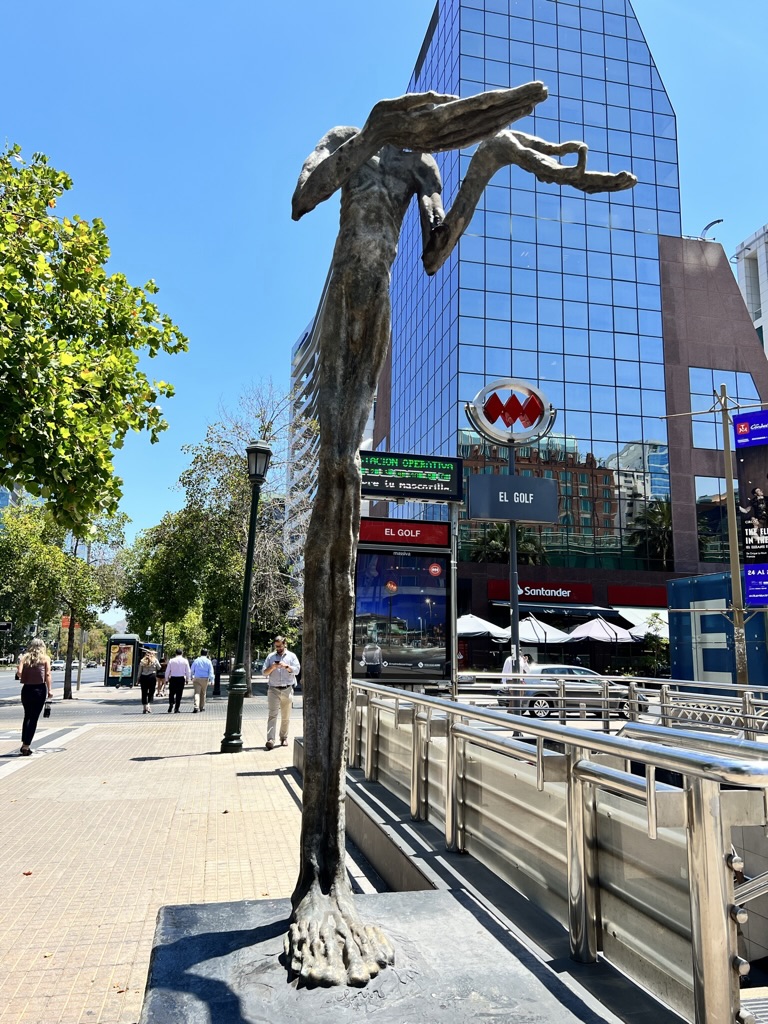It was bound to happen sooner or later.
In our case, it was later.
After decades of safe international travel to more than 70 countries, we had a violent encounter.
Walking down a sunny street in Santiago, Chile, mid-day in a nice neighborhood, we felt safe. Big mistake. And we should have known better.
I mean, if I’m carrying a bag, it’s always cross body in front with my hand firmly gripping it. Wallets are in front pockets. I wear my cell phone on a cross body strap and have a hand on that too. Engagement and other flashy rings are left at home. But this time, I was a bit careless. I didn’t think about the trio of slim gold chain necklaces I had on.
However, we’re always scanning for stalkers (and successfully warded off one once in Cape Town.)
But on this day in Santiago, when the clean-cut young man walking in front of me glanced over his shoulder at me, I thought nothing of it. The next moment, my neck was seized as he grabbed for my necklaces. I screamed and by the time we turned around, the guy was nearly a block away.
But my scream must have startled him and he broke his grasp. My necklaces were still there, although two were broken. And other than a scratch and a bad wave of anxiety, I wasn’t seriously hurt.

We found the closest bar for a calming drink. There, the people we spoke to were very upset about what had happened to us, but they weren’t surprised.
Immediately, as so often happens in the U.S. now when we talk about crime, they blamed immigrants.
According to the Pew Research Center, a majority of the migrants encountered in November 2022 at the U.S. border (63%) were from countries other than Mexico and the Northern Triangle region, which includes El Salvador, Guatemala and Honduras.
Some of the biggest increases in encounters have involved people from Colombia, Cuba, Nicaragua, Peru and Venezuela, Pew reported.
Those same folks fleeing poverty and violence aren’t just coming North. They’re also apparently fleeing South to Chile and Argentina, the most developed countries in South America. Both are stable presidential republics, as is the U.S.
So the migration South, though rarely heard about here in the U.S., makes sense. And the debate over it that we encountered was just as varied as in the U.S. Some blamed the migrants for increased crime, and others said they are just easy scapegoats. Others just knew to tell us not to go to popular Santiago destinations, such as the Central Market (Mercado Central) because crime has gotten too bad.
Obviously, we didn’t get the chance to ask our attacker where he was originally from. But we did learn a hard lesson about never being careful enough.

